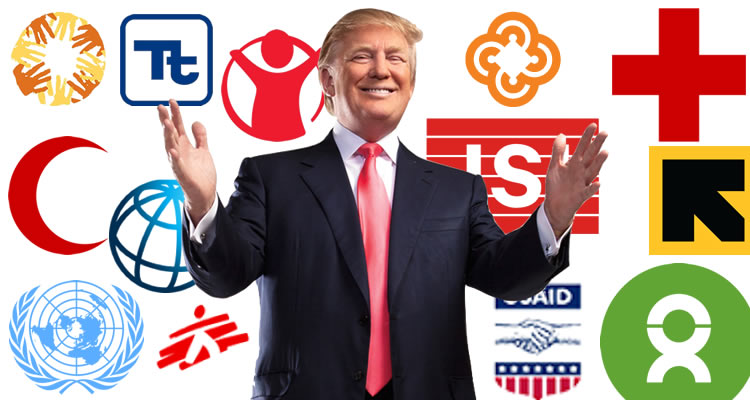For many in the social impact sector, the realization of the Trump presidency has been like a fantastic punch in the gut. Because of the nature of his campaign, the divisions it has exposed in the US (and around the world), and the reverberations it may have, this punch is one that not only knocks you to the mat, but one that makes you seriously consider staying down for the count.
As someone with 15 years of experience in the sector, I totally get this. And, I admit that, since the election, I’ve been wondering myself what the massive shifts we are seeing mean to me, my career, my organization and my family. While it has taken me a while to get here, I’ve made the decision that the Trump presidency is actually the best thing to ever happen to the social impact sector.
Let me give you my two reasons for this:
Practical Considerations
Regardless of who our leaders are, there are fundamentals that will always matter in the social impact sector. At the top of this list is your ability to clearly demonstrate that your organization and its programming, or product, or service is valuable.
Conventionally, this is done by creating results. Not just flash in the pan results, or results that have been realized because of a unique set of circumstances. Value comes from demonstrating results that can be replicated and scaled. (And, generally, the more efficiently you achieve these results, the better.)
Unconventionally, in our hyper connected and social world, you need to have fans. And, not just I-liked-your-facebook-page fans, but raving fans. Fans that will tell their friends, their colleagues, their distant cousins and, most importantly, complete strangers about your organization (or product or service). Take a moment and think about something in your life you think is just plain awesome, something you’ve recommended to others or use everyday. Got it? That’s the type of feeling you want people to have about your contribution to social impact.
Now, more than ever, you need to make sure that you can show up with these two fundamentals. If you do, you’ll continue to have too much work on your plate for as long as you desire.
Emotional Considerations
So, you’re on the mat. Its comfy down here. In fact, the easy decision would be to stay down, take a nap and wait for the room to clear before you get up, brush yourself off and, likely, move on to another profession.
This is the moment you need to ask yourself how committed you are to solving the world’s most difficult problems. Seriously. Take a good look in the mirror and ask yourself if you thought this sector would be easy. Were you prepared to get back up 10 times? 100 times? 1000 times? After you’ve seen all your work burned to the ground? When it looks like you’re going to have to find new funding for 100% of your programs?
Then ask yourself, what if Gandhi quit? What if MLK quit? Do you think Malala Yousafzai is going to quit?
If your answer is anything other than “hell, yes!” perhaps you’ve found a wonderful moment in time to gracefully bow out and set off on another path. But if you are ready to triple down, there is absolutely no better time than the present to stand back up for the next 12 rounds.
Make this your moment
Assuming you haven’t made the decision to walk away, I invite you to make the most of this opportunity. Now is your time to do things like:
- Break free of your dependency on (insert your favorite donor here) funding
- Bring the private sector to the table in a massive way
- Demand more flexibility in contracting agreements
- Demand the ability to finance overhead/admin/research
- Start your social enterprise
… or any of the 100 things you didn’t do when the going was eas(ier).
Your immediate next step
Here’s how you can take immediate action to make the most of this important time in history:
- Get clear on your commitment to helping others
- Get focused on the issue you want to own
- Get organized as an individual practitioner or organization
- Get motivated and take specific, intentional action towards the world you want to realize everyday
Need some extra inspiration? Click here to listen to any of the 135+ Terms Of Reference Podcast episodes




